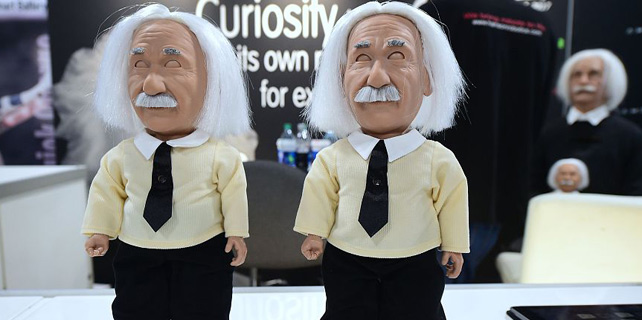The nuclear threat in Korea — 67 years later
The United States dropped atomic bombs on Hiroshima and Nagasaki, on Aug 6 and 9, respectively, 1945, to hasten Japan's unconditional surrender. The two bombs killed at least 129,000 people, most civilians.
While the attacks remain the only use of nuclear weapons in the history of warfare, the US had considered using such weapons during the Korean War from 1950 to 1953.
In an article published in Dec 2004 in Le Monde Diplomatique, Bruce Cumings, a University of Chicago historian, cited multiple instances of such threats by the US.
On Nov 30, 1950, US President Harry Truman said the US might use any weapon in its arsenal. "The threat was not the faux pas many assumed it to be, but was based on contingency planning to use the bomb," Cumings wrote.
On Dec 9, 1950, Gen Douglas MacArthur said that he wanted commander's discretion to use atomic weapons in the Korean theater. On Dec 24, he submitted "a list of retardation targets" for which he required 26 atomic bombs. He also wanted four to drop on the "invasion forces" and four more for "critical concentrations of enemy air power".
In interviews published posthumously, MacArthur said he had a plan that would have won the war in 10 days. "I would have dropped 30 or so atomic bombs . . . strung across the neck of Manchuria", Cumings quoted MacArthur as saying.
Then he would have introduced half a million Chinese Nationalist troops at the Yalu and then "spread behind us — from the Sea of Japan to the Yellow Sea — a belt of radioactive cobalt . . . it has an active life of between 60 and 120 years. For at least 60 years there could have been no land invasion of Korea from the North."
MacArthur was certain that the Russians would have done nothing about this extreme strategy, Cumings said.
The US came closest to using atomic weapons again in April 1951, when Truman fired MacArthur, Cumings said. Although much related to this episode is still classified, it is now clear that Truman did not remove MacArthur simply because of his repeated insubordination, but because he also wanted a reliable commander on the scene should Washington decide to use nuclear weapons.
"Truman traded MacArthur for his atomic policies," Cumings wrote.
These were just some of the cases Cumings cited in the article.
Gallup polls conducted in those years revealed US public sentiment towards the use of nuclear weapons.
In Aug 1950 as US-led United Nations military forces faced possible defeat two months into the Korean War, Gallup asked Americans what they thought of using atomic bomb in the conflict.
The public views were clear, with 60 percent saying nuclear bombs should not be used and only 28 saying they should be used. The other 12 percent had no opinion.
With the war still raging a year later, Gallup returned to the issue, with a different question, asking whether UN forces should use atomic bombs "on enemy military targets in Korea."
Perhaps because of the emphasis on military targets, or because the question asked about the UN rather than the US dropping the bombs, or perhaps because support had truly grown — the reasons are unclear — 40 percent of Americans were supportive and another 10 percent offered qualified support.
The poll, brought up last week by Lydia Saad, a senior editor at Gallup, is a reminder of the current situation on the Korean Peninsula. The Korean War continued until an armistice was signed in July 1953, which literally means the war will not officially end until a peace treaty is signed.
Under such threats from the US, China started to develop its own nuclear arsenal in the mid 1950s. While initial assistance from the Soviet Union helped, the break in relations between China and the Soviet Union from 1958-1960 meant China had to embark on a policy of self-reliance.
On Oct 16, 1964, China detonated its first atomic bomb. On June 17, 1967, China detonated its first H-bomb. It came just 32 months after China's first atomic test, and was described as the shortest time line of the first five nuclear powers.
China was the first nation to propose the no first use of nuclear weapons policy ever since its first nuclear test in 1964 and has stuck to the policy ever since, while US-led NATO has repeatedly rejected calls for adopting such a policy. China's minimum deterrence policy is also regarded by international relations experts as wise.
Contact the writer at chenweihua@chinadailyusa.com









